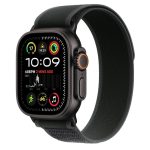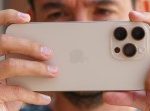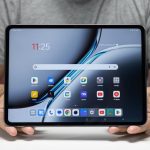It was impossible not to intensely stare at the faces of Thomas Bangalter and Guy-Manuel de Homem-Christo which had been hidden from the view of their millions of fans since the group’s inception in 1997.No photos were allowed as the French musicians, the tall, dark Bangalter and handsome blond De Homen-Christo, discussed what would be their final studio record, 2013’s chart-busting Random Access Memories.Just days before, they had stood anonymous – sans helmets – among a VIP crowd at the renowned Coachella festival, watching a “mellow’’ audience watch their 60-second “commercial’’ for their first new single in eight years, the Grammy-winning Get Lucky, featuring Pharrell Williams and Nile Rodgers.“It feels more surreal than anything else. It’s hard to grasp, you know,” said Bangalter, a man who had co-engineered some of the most surreal and perfect music over two decades.“This is our first new song in eight years and we worked for a period of five years on that record, so it’s strange.”With the benefit of hindsight, that conversation seemed to hint that album would be their last. The pair were never the kind of artists who would punch out a new record every couple of years. But their fourth and final record in 2013 came eight years after the Human After All.They credited the two years they spent working with an orchestra composing the score for the Disney film, Tron: Legacy for giving them a reason to keep going in the studio and create another Daft Punk album.The Tron experience prompted them to eschew the robotic voices which had defined their sound and struck an almost permanent influence on pop vocals to this day.One listen to pop radio or a playlist and you’ll hear myriad rappers and r&b singers emulating Daft Punk’s vocal effects. “All the human beings are starting to sound more like robots,’’ Bangalter told me.“Music is starting to feel it’s made much more by computers right now and less by people.“So it was interesting to meet in the middle and still have this mix of technology and humanity, and of robots and humans, but starting from the other end of the spectrum, which would be to try to make robots as human as possible.’’That record had two quirky and wholly surreal links to Australia.Firstly, its only sample, which introduced the closing track Contact, was borrowed from 70s Australian rockers Sherbet, clipped from their song We Ride Tonight, from when they were The Sherbs.Bangalter often played the song to close his DJ sets.“It’s a band called The Sherbs? Oh yes, Sherbet. That’s the only sample there is on the record,’’ Bangalter said.The other Australian connection was the bizarre world premiere for Random Access Memories in the NSW town of Wee Waa, staged alongside the cotton capital’s annual fair with the blessing of Daft Punk.Wee Waa went global, with the party attracting diehard fans from around the world as rumours circulated that the two French “robots” would make a guest appearance on the giant LED disco floor in the middle of rural Australia. They didn’t make it, but the outback rave remains one of the most legendary album launches ever staged here.More than 1500 Daft Punkers and curious locals joined the rave at the local showgrounds, dancing to every song on the album under strobing spotlights and a glittering giant disco ball after chowing down on Daft Pork sausage sangas.“Well, we like surprise and unexpected things,” Bangalter said when asked why Wee Waa. “This music is about breaking every line between the unexpected and the expected and also about doing something that triggers the imagination so conceptually it’s interesting that this music can be listened to anywhere and it is timeless or spaceless.’’So a surprise Daft Punk reunion in a decade may not be that unexpected.
Powered by WPeMatico






